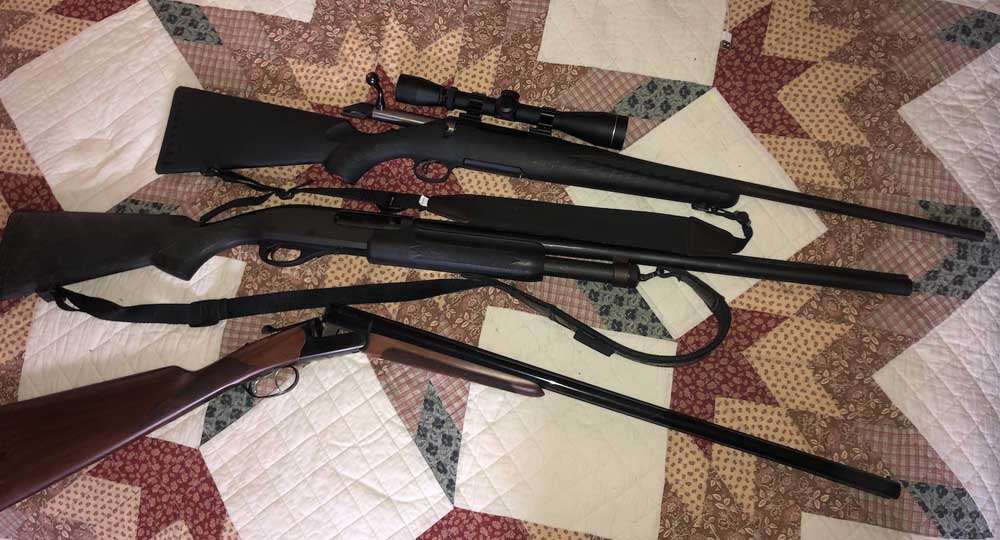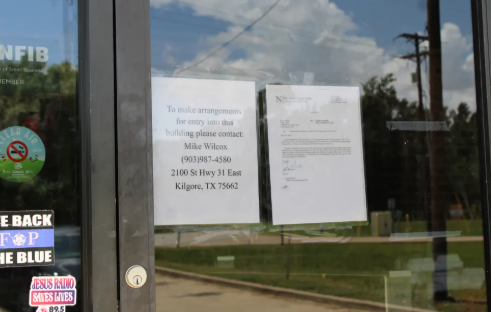Hard Decisions: Tough Choices Face Those Selling Estate Firearms And Ammo
Published 9:03 am Friday, January 13, 2023

- Although laws on selling guns are not that restrictive, selling guns for an estate creates some challenging issues.
Twice last year I received calls from people working on estates that included guns and ammo. Both situations were completely different, but in some ways were the same.
In one instance it was a living estate. In the other there was a death in the family. Helping the best I could I learned that estate sales, whether for the living or after a death, can be difficult. When you add guns to the equation it can get really hard.
Trending
The problem begins with setting a value. Just like everything today it is easy to get online and find a retail price. Unfortunately, that is not necessarily the value and as the saying goes the value is what someone is willing to pay.
The catch is what people are looking at is retail price, whether new or used. For those selling a gun they see those prices and think that is where theirs should be placed as well. The reality is depending on how the gun is sold it may be worth not much more than 50% of its original price.
What I have learned is family members also see a number based on sentimental value. It is easy to understand. Unfortunately, just like with grandmother’s china a potential buyer does not attach that same sentiment to it. Their desire to purchase is the same as if they walked up to a counter to buy it except they are not expecting to pay as much because of the lack of overhead, and the fact the gun is not new.
That last point is also important. A gun is like a new car, as soon as you take it off the dealer’s property it depreciates in value. Again, like a car some hold their value better than others, but how much depends on model and value.
One of the estates I talked to had two pistols, a Heckler & Koch and a Sig Sauer. Both were quality guns and only lightly used, but their values went in different directions. The HK was a .45 and still a desirable pistol that has held value. Unfortunately it did not hold as much value as expected. Ironically it was an expensive gun, and buyers in that price range prefer new over used.
The Sig was a .40 caliber, a caliber that has fallen out of interest with buyers and was valued at a third of its new cost.
Trending
Something else I have learned, and it is hard to tell someone, is that what you bought was top-of-the-line and probably pricey at the time, but what was in demand 10 years ago much less 40 may not be today.
There are two ways to sell a gun, a gun shop or individual. Truthfully you are going to make more money by selling to an individual. A gun dealer must think of not only how much they can sell the gun for as well as how long they may have to keep it. In 2022 the gun market was hot in the summer, but slowed at Christmas driving down what a dealer is willing to pay, if they were buying. Also, trends shifted in the fall from protection-style weapons back to more hunting guns.
Selling a gun to an individual carries risks. If you know the buyer that is one thing. If you find a way to advertise it, and that is not easy these days, and sell it to an individual you are not required to gather their information so you can only hope at some point in the future it is not used in a crime.
You have to ask yourself do you want strangers coming to your house to pick up a gun. I do not, and even meeting them at a public location is a risk I am not interested in taking.
A dealer has to follow federal gun laws and will have to do paperwork of the transfer. That means proof of ownership from the living estate or a transfer of ownership follow a death. For the seller this means there is proof of a transfer of ownership giving you protection over the gun’s use down the road.
Ammunition brings with it a whole different set of problems. For the most part dealers are going to shy away from it because it brings a liability they do not worry about from their regular distributor. Some might buy it if they know an individual who might be interested in it, but probably will not put it back on the shelves.
Parts and accessories carry little or no value, and are often just throw-ins to sweeten the pot. With rare exceptions, like night vision or the most-modern scopes, optics add little or no value to a resale.
The other thing I have learned is that depending on the situation it may not be the right time to sell. Whether the loss is too new or the market is not right it is Ok to back off and wait for another day.






